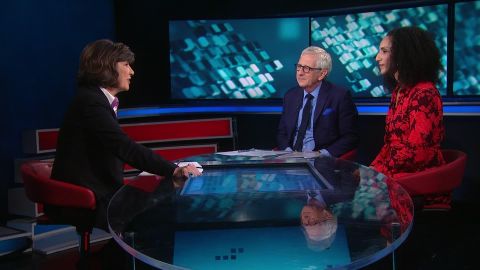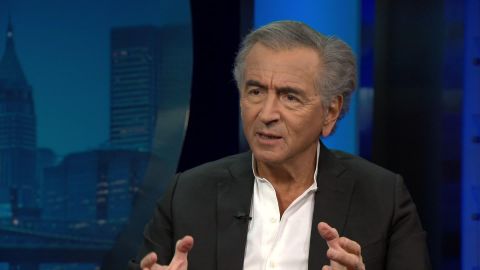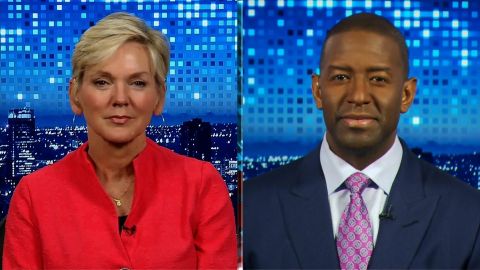Read Transcript EXPAND
CHRISTIANE AMANPOUR: I want to know, how much do you think racism has played into this? A disaffection, at least by Megan and her husband, Harry, to the way they’ve been treated here.
AFUA HIRSCH: On Race, Identity and Belonging.”: I think it’s impossible to ignore the context of racism, and not necessarily in the way the Royal Family has behaved towards Meghan individually, and not necessarily the way in which the British public have behaved towards her. But in the treatment of the press, and especially the tabloid press, there has been an undeniable racist undertone from the very beginning, and I feel that that narrative about her being somehow linked to violent crime, I mean, let’s not forget —
AMANPOUR: You mean straight outta Compton?
HIRSCH: She was described as straight outta Compton.
AMANPOUR: So let me put this up because you’ve got that “Daily Mail” headline in 2016, “Harry’s girl is (almost) straight outta Compton: Gang scarred home of her mother revealed.”
HIRSCH: It’s almost impossible to imagine a white person who is from Los Angeles, who has no known association to any gang violence being described in that way for no other reason than the fact of where she grew up. And there are other things —
AMANPOUR: And she didn’t grow up in Compton, I hasten to say.
HIRSCH: She didn’t grow up in Compton and there was even the suggestion that should the Queen ever wish to visit Meghan Markle’s mother, there might be a hail of bullets descending outside. I mean, anyone who has grown up with the language of our press knows the way in which they again and again associate people of color with violent crime and this coded language about gangs and violence is inevitably interlinked with ideas about people with African heritage specifically. And there were other things. When Meghan Markle ate avocado. She was associated with the mass murder of gangs that’s linked to the trafficking of avocado. When she created a charity cookbook for the victims of a tragic fire that killed many people in a very multicultural part of London.
AMANPOUR: The Grenfell fire.
HIRSCH: The Grenfell Tower fire, she was accused of having links to Islamic extremists who were apparently connected to a mosque that benefited from her charity. And if you look at these narratives in the tabloid press, you can see identical things that other senior Royals have done in their eating habits, in the way they cradle their baby bump, in the charity work they do, in guest editing publications. She guest edited “Vogue.” She was accused of being racist against white people.
AMANPOUR: Oh for god’s sake.
HIRCH: Because she included so many —
AMANPOUR: It was an action — nobody was an issue about women of color. Hello?
HIRCH: And meanwhile, other Royals who have done other guest editor ships or have done similar things have been praised for their actions. Now, unfortunately, there’s so much ignorance about what racism is in Britain, but I think short of an overtly racist caricature or racial swear words, people will not accept that race is a factor.
AMANPOUR: And in fact, they’re not. There is a huge debate right now. Oh, why is she complaining? We’re not racist. I mean, Priti Patel, who is the Home Secretary has basically said that anybody of any race can get along in this country.
About This Episode EXPAND
Christiane Amanpour speaks with a former governor and mayor about what’s coming up in U.S. politics. She also speaks with a British journalist and historian about the state of the British monarchy. Hari Sreenivasan speaks with French philosopher and writer Bernard-Henri Lévy about his recent documentaries highlighting the front-line of the fight against ISIS.
LEARN MORE


